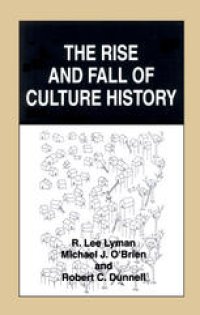
Ebook: The Rise and Fall of Culture History
- Tags: Archaeology
- Year: 1997
- Publisher: Springer US
- Edition: 1
- Language: English
- pdf
`This engaging work describes one of the most important times in the history of American archaeology... The writing and editing are excellent; arguments are presented clearly, concisely, and completely... The material will be of most interest to serious students of archaeological interpretation. Upper-division undergraduates and above.'
Choice, February 1998
`This Book not only provides a detailed assessment of the early history of American archaeology, it offers insight into how to use that history to current advantage. I recommend the volume to archaeologists interested in understanding major contributions to American archaeology of both culture and Darwinian evolutionary archaeology. '
Journal of the History of the Behavioral Sciences, 38:1 (2002)
`...should also play a significant role in reminding current archaeologists of the forgotten and unappreciated complexities of the Americanist cultural historical paradigm as it developed during the first 60 or so years of the 20th century. The Rise and Fall of CultureHistory and Americanist Culture: Fundamentals of Time, Space, and Form together form the most comprehensive and focused commentary on theoretical developments in American archaeology between 1900 and 1960. Lyman, O'Brien, and Dunnell effectively mix a chronological study of the paradigm's development with topical discussions of artifact classification methods and classifications of artifact aggregates. The greatest strength...is its focus on the intricate logic and thinking behind the development of categories and measurements of archaeological data that could be applied to questions of anthropological interest.'
North American Archaeologist, 22:4 (2001)
This volume presents an insightful critical analysis of the culture history approach to Americanist anthropology. Reasons for the acceptance and incorporation of important concepts, as well as the paradigm's strengths and weaknesses, are discussed in detail. The framework for this analysis is founded on the contrast between two metaphysics used by evolutionary biologists in discussing their own discipline: materialistic/populational thinking and essentialistic/typological thinking. Employing this framework, the authors show not only why the culture history paradigm lost favor in the 1960s, but also which of its aspects need to be retained if archaeology is ever to produce a viable theory of culture change.